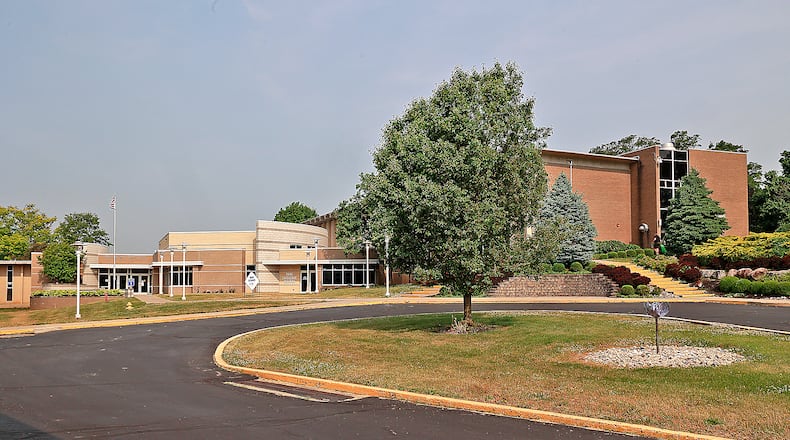The CTC “should pursue” replacing its multiple existing buildings with a single, new, up-to-date facility to address the county’s growing demand for students and workforce needs, according to community leaders.
A group of several dozens county leaders, including employers, educators, elected officials, business representatives and nonprofit professionals met for a second time on May 23 to review and discuss how best to address the school’s crowded and aging facilities, and unanimously recommended the school construct a new building.
“A primary goal of updating CTC facilities is ensuring most students can be served,” said Superintendent Michelle Patrick.
Horton Hobbs, vice president of Economic Development for the Greater Springfield Partnership, said the choice to build a new school was obvious because the county’s future “prosperity requires CTC to fully meet the community’s demand for career tech education.”
Administrators have partnered with the Ohio Facilities Construction Commission (OFCC) to help finance the project since the commission provides a portion of state funding for school construction projects that meet its requirements.
The OFCC process started in 2017 when Patrick asked for a review of the assessment last completed in 2005. In late 2022, CTC had moved to the top of the OFCC’s list for school facilities co-funding from the state.
The OFCC’s recent assessment estimates renovation costs to be more than $51 million and the cost to build a new facility, with similar square footage, at $66.4 million. Since the cost to renovate is 77% of the cost to replace with a new facility, which exceeds the OFCC’s two-thirds rule, they recommended building new and will provide matching funds.
A location on the current CTC-owned land to the south of the administration building has undergone initial testing and could likely accommodate a new facility, according to representatives from Schorr Architects and the Community Design Alliance, who are working with CTC during the planning process.
“Not having to purchase property or disrupt or displace students during construction were viewed as strong positives,” Patrick said.
Other considerations weighed by the group before recommending the new building option included improved safety and security, energy efficient with LEED certification, and taking advantage of the state’s co-funding.
The CTC, formerly known as the Springfield-Clark County Joint Vocational School, offers high school students from Clark County the choice of 22 programs in high-demand career fields. The programs and classes are on Selma Road in seven buildings, most of which are more than 50 years old, and enrollment is limited by classroom sizes. Between 2013 and 2023, the school turned away more than 700 students, including 150 for the upcoming school year.
Patrick said the campus is a little over 182,000-square-feet, and a new facility could add 29,000-square-feet.
“Although the additional square footage would not be co-funded by the state, the community leaders agreed it was important to meet Clark County’s student and workforce needs,” she said.
Hobbs said CTC provides practical career-based learning that is skill centric.
“It’s what our existing employers demand, and it’s what those that we aspire to attract to the community want,” he said. “You have to have facilities that are conducive to that kind of learning. It’s just so in demand, and that’s not going to change, probably ever.”
The school board will meet this month to consider next steps. However, to finance the local share of the projects costs, CTC would need to put a property tax levy up to 1.5 mills on the ballot, which officials said is less than $4.50 a month per $100,000 of property value.
Angela Yake, who teaches cyber security at CTC and lives in South Charleston, said this is a small price to pay to be able to provide her students with the best possible learning environment.
“The lack of flexibility in the classroom and the structure of my classroom has limited my ability to have collaborative workspaces where students can work together and independently simultaneously,” she said. “In cyber security you’re constantly needing to collaborate with others because everything is changing so rapidly. You need to be able to communicate as well as work together to solve problems.”
For more information or to follow the progress on the project, visit SCCTC.org/FacilityProject.
About the Author

